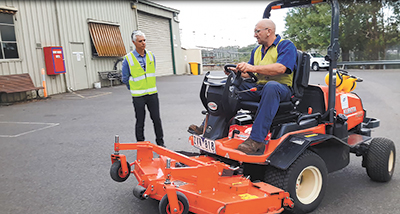At a time when many local governments are experiencing increased manual handling incidents, Manningham Council in Victoria is reversing the trend.
Since introducing the My Health, My Life Program in late 2015, Manningham Council has halved the number of claims relating to manual and musculoskeletal injuries. The severity and length of these injuries have also reduced.
Kerryn Paterson, Manager of People Culture and Safety, said the My Health, My Life Program focused on injury prevention through education, together with early injury management and physiotherapy.
“Central to this program has been empowering staff to use their own skills and work experience to identify problems and solutions,” Ms Paterson said.
“We held a series of workshops to educate staff about risk awareness and to take greater responsibility in driving this change in their everyday role.
“Our staff have really taken this program on board. We’ve seen a number of cost effective process improvements put forward which has had positive effect on their work,” she said.
As part of this program a physiotherapist and ergonomist Garry Francis-Pester was contracted to deliver the workshops. The program has taken a holistic approach to early intervention and injury management.
“Through the My Health, My Life Program we undertook ergonomic assessments as well as observation and video analysis of manual work tasks. This provided staff with valuable learning opportunities and helped create greater awareness of workplace risks,” Mr Francis-Pester said.
“Another value add of the program is offering one to one consultations for assessments of injury and provision of tailored advice and exercise programs.
“It is about health as it relates to workability not just the absence of injury.
“The success of the program is very much dependent on the strong partnership I’ve had with Manningham. This helped drive the program and yielded quality engagement. This engagement is a strong predictor of a good safety culture,” he said.
Since the My Health, My Life Program started it has seen over 500 staff take part, 80 one-on-one consultations and more than 100 video recordings of work activities.

















